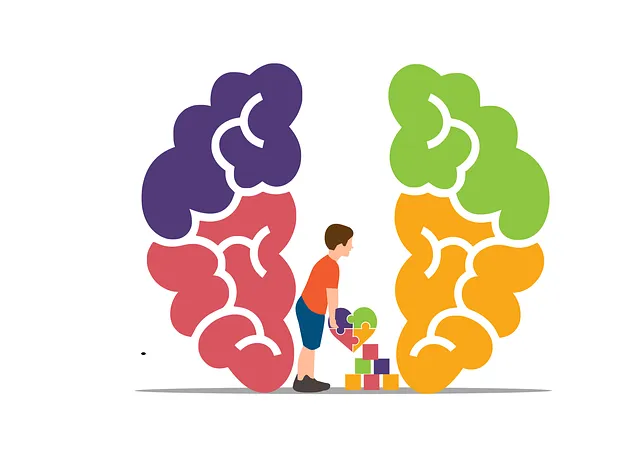Kaiser Permanente mental health Castle Rock offers specialized trauma care with a holistic approach, addressing physical and mental impacts of overwhelming events. They integrate burnout prevention for staff, cultural sensitivity for diverse patients, and evidence-based practices like mindfulness to create supportive environments fostering resilience and open communication. Through programs focusing on education, coaching, and stress management, they empower communities to navigate trauma collectively.
Trauma is a pervasive issue affecting individuals across diverse communities, with far-reaching consequences for mental well-being. This article explores critical aspects of trauma support services provision, focusing on understanding its impact and highlighting innovative approaches by organizations like Kaiser Permanente and community-based initiatives in Castle Rock. We delve into various services, emphasizing accessibility and effectiveness, to ensure better care for trauma survivors. Key topics include the role of established healthcare networks like Kaiser Permanente in mental health support and unique, community-focused models such as Castle Rock’s approach.
- Understanding Trauma and Its Impact
- The Role of Kaiser Permanente in Mental Health Support
- Castle Rock: A Community-Focused Approach to Trauma Care
- Types of Trauma Support Services
- Enhancing Accessibility and Effectiveness in Trauma Support
Understanding Trauma and Its Impact

Trauma is a complex and profound experience that can have lasting effects on an individual’s mental and physical well-being. It refers to an event or series of events that overwhelm a person’s ability to cope, leading to intense feelings of fear, helplessness, or horror. The impact of trauma can manifest in various ways, affecting not just the mind but also the body, relationships, and overall functioning. At Kaiser Permanente mental health Castle Rock, we recognize the profound need for specialized support services to address these hidden wounds.
Understanding trauma involves recognizing its far-reaching consequences, which can include anxiety, depression, flashbacks, nightmares, and even physical symptoms like chronic pain. For healthcare professionals, particularly those in burnout-prone roles, recognizing and managing their own potential trauma responses is crucial. This includes implementing effective risk assessment strategies for mental health professionals to ensure they can provide compassionate care without sacrificing their inner strength. By integrating burnout prevention strategies for healthcare providers, we can foster a more sustainable and supportive environment, ultimately enhancing the quality of care offered at Kaiser Permanente mental health Castle Rock.
The Role of Kaiser Permanente in Mental Health Support

Kaiser Permanente, a renowned healthcare organisation, plays a pivotal role in providing mental health support, especially in communities like Castle Rock. With a strong focus on holistic wellness, they offer comprehensive services tailored to meet diverse individual needs. Their approach integrates medical expertise with therapeutic interventions, ensuring patients receive the best possible care for their mental health concerns.
The organisation’s involvement in Mental Health Awareness initiatives is noteworthy. They organise educational programs and workshops, promoting understanding and breaking down stigma associated with mental health issues. Moreover, Kaiser Permanente advocates for Mental Health Policy Analysis and Advocacy, pushing for improved access to quality mental healthcare services. Conflict Resolution Techniques are also integrated into their support system, fostering a safe and supportive environment for individuals navigating trauma and seeking recovery.
Castle Rock: A Community-Focused Approach to Trauma Care

Castle Rock represents a pioneering community-focused approach to trauma care, offering services that seamlessly integrate with Kaiser Permanente’s mental health offerings. This innovative model prioritizes the unique needs of individuals and communities affected by trauma, ensuring accessible and holistic support. By combining clinical expertise with community engagement, Castle Rock provides a safe space for recovery and resilience.
Their Mental Health Education Programs Design and Mental Wellness Coaching Programs Development cater to diverse populations, empowering individuals with coping mechanisms and fostering collective healing. Additionally, Stress Management Workshops Organization plays a vital role in promoting mental wellness within the community, enabling folks to navigate life’s challenges with enhanced resilience.
Types of Trauma Support Services

Trauma support services encompass a range of specialized programs designed to assist individuals who have experienced traumatic events. One notable provider is Kaiser Permanente mental health Castle Rock, which offers comprehensive care tailored to address the unique needs of trauma survivors. These services include individual therapy sessions aimed at helping clients process their experiences and develop coping strategies for emotional regulation.
The provision of cultural sensitivity in mental healthcare practice is a cornerstone of these services. By incorporating culturally responsive approaches, Kaiser Permanente ensures that its support aligns with the client’s background and beliefs, fostering trust and encouraging open communication. Furthermore, positive thinking techniques are integrated into the therapeutic process to promote resilience and empower individuals to reframe negative thoughts, enhancing their overall well-being.
Enhancing Accessibility and Effectiveness in Trauma Support

In enhancing accessibility to trauma support services, organizations like Kaiser Permanente mental health Castle Rock play a pivotal role in ensuring individuals affected by traumatic events receive timely and effective care. One key strategy is integrating cultural sensitivity into mental healthcare practice, addressing the diverse needs of a varied patient population. By tailoring interventions to respect and incorporate cultural beliefs and practices, these services become more inclusive and impactful.
Additionally, risk management planning for mental health professionals is essential in creating a safe environment for both clients and practitioners. Implementing evidence-based practices such as mindfulness meditation can help reduce the impact of trauma on individuals’ mental health. This not only enhances the effectiveness of support but also fosters resilience among those who have experienced traumatic events, ultimately leading to better outcomes and improved quality of life.
In light of the widespread impact of trauma, organizations like Kaiser Permanente play a vital role in providing accessible mental health support. The innovative community-focused approach by Castle Rock highlights effective strategies for trauma care. By combining comprehensive services and enhanced accessibility, these initiatives ensure that individuals affected by trauma receive the necessary support to heal and thrive. This article has explored various aspects of trauma support services, emphasizing the importance of specialized care in improving outcomes.






